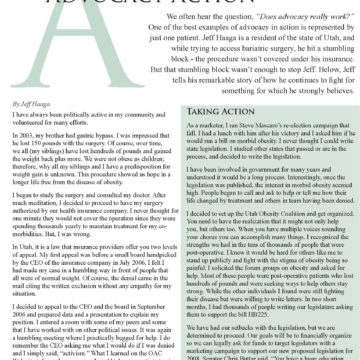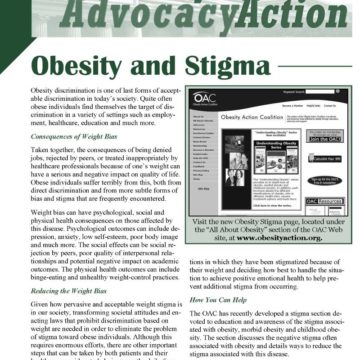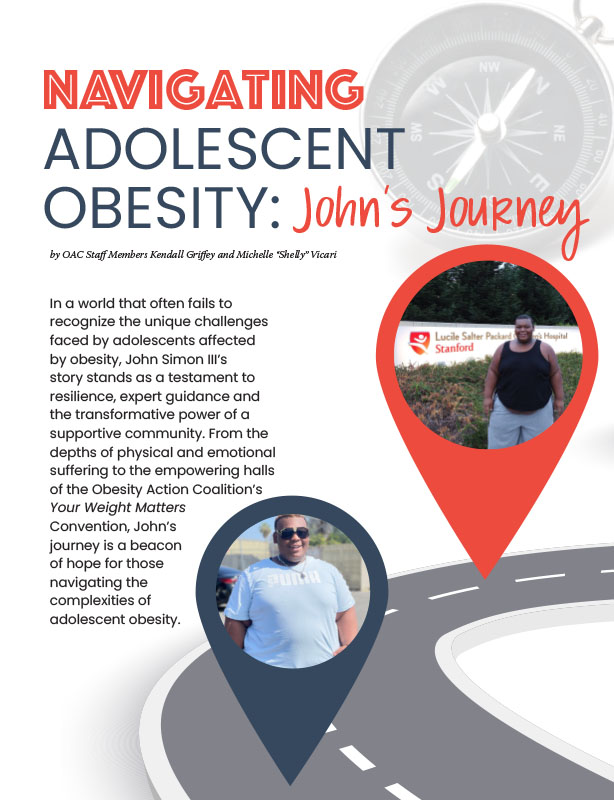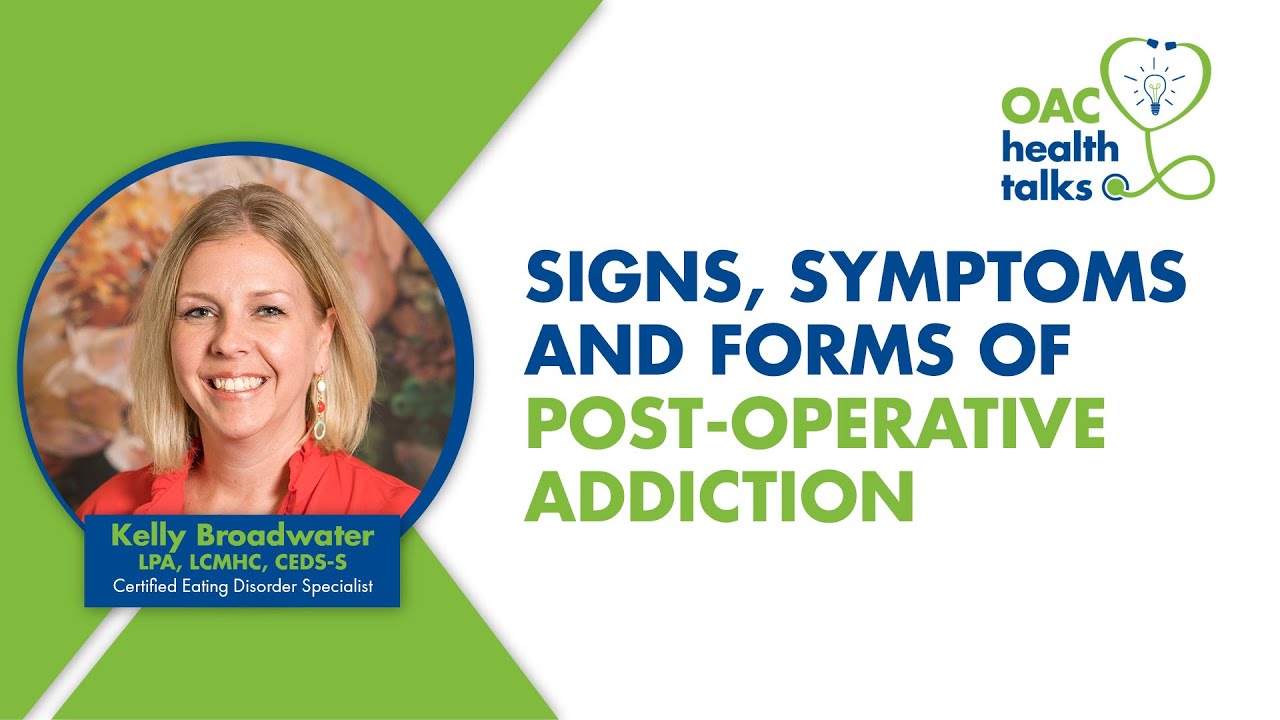BlueCross BlueShield of Tennessee Rescinds IQ Testing Requirement for Those Seeking Weight-Loss Surgery

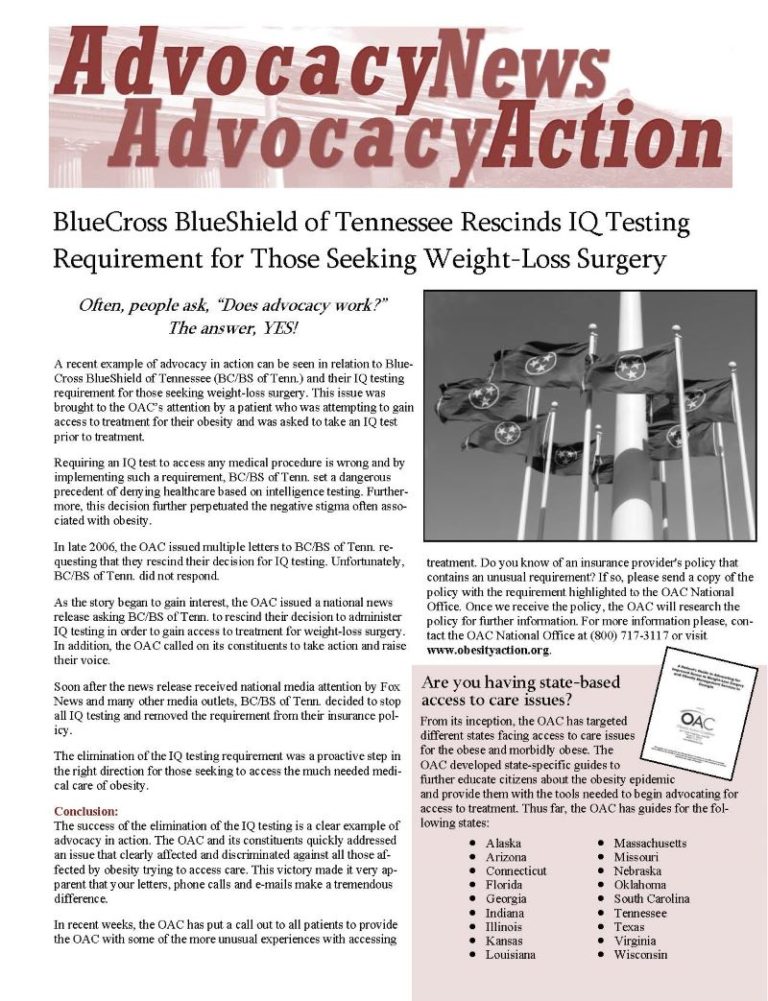
Spring 2007
Often, people ask, “Does advocacy work?”
The answer, YES!
A recent example of advocacy in action can be seen in relation to BlueCross BlueShield of Tennessee (BC/BS of Tenn.) and their IQ testing requirement for those seeking weight-loss surgery. This issue was brought to the OAC’s attention by a patient who was attempting to gain access to treatment for their obesity and was asked to take an IQ test prior to treatment.
Requiring an IQ test to access any medical procedure is wrong and by implementing such a requirement, BC/BS of Tenn. set a dangerous precedent of denying healthcare based on intelligence testing. Furthermore, this decision further perpetuated the negative stigma often associated with obesity.
In late 2006, the OAC issued multiple letters to BC/BS of Tenn. requesting that they rescind their decision for IQ testing. Unfortunately, BC/BS of Tenn. did not respond.
As the story began to gain interest, the OAC issued a national news release asking BC/BS of Tenn. to rescind their decision to administer IQ testing in order to gain access to treatment for weight-loss surgery. In addition, the OAC called on its constituents to take action and raise their voice.
Soon after the news release received national media attention by Fox News and many other media outlets, BC/BS of Tenn. decided to stop all IQ testing and removed the requirement from their insurance policy.
The elimination of the IQ testing requirement was a proactive step in the right direction for those seeking to access the much needed medical care of obesity.
Conclusion:
The success of the elimination of the IQ testing is a clear example of advocacy in action. The OAC and its constituents quickly addressed an issue that clearly affected and discriminated against all those affected by obesity trying to access care. This victory made it very apparent that your letters, phone calls and e-mails make a tremendous difference.
In recent weeks, the OAC has put a call out to all patients to provide the OAC with some of the more unusual experiences with accessing treatment. Do you know of an insurance provider’s policy that contains an unusual requirement? If so, please send a copy of the policy with the requirement highlighted to the OAC National Office. Once we receive the policy, the OAC will research the policy for further information. For more information please, contact the OAC National Office at (800) 717-3117.
by OAC Staff Members Kendall Griffey and Michelle “Shelly” Vicari Winter 2024 In a world that often…
Read Articleby Rachel Engelhart, RD; Kelly Donahue, PhD; and Renu Mansukhani, MD Summer 2023 Welcome to the first…
Read ArticlePost-operative addiction is often overly simplified as transfer addiction or cross-addiction, assuming individuals “trade” compulsive eating for…
View Video




